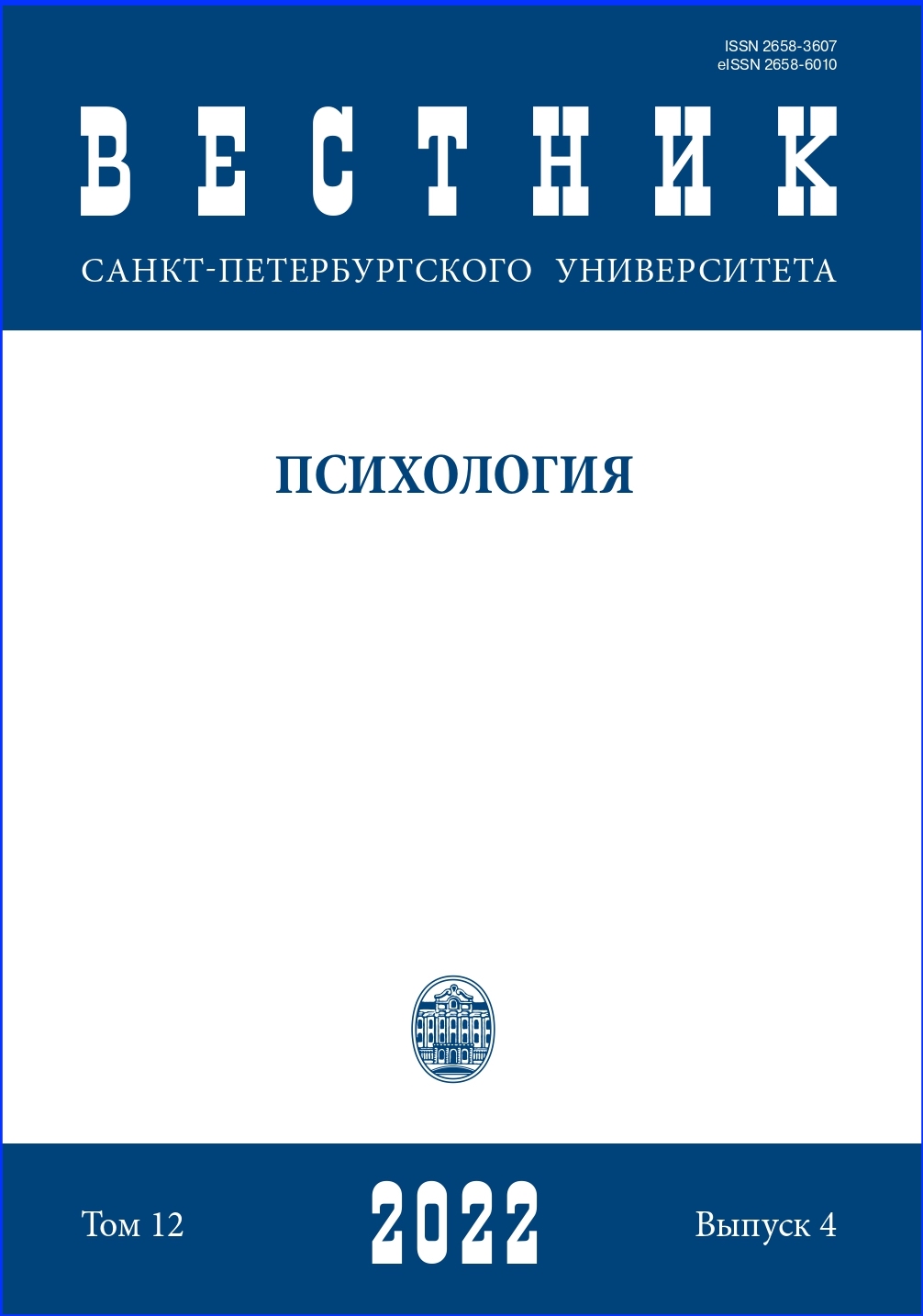Coping factors underlying academic achievement in senior adolescence
DOI:
https://doi.org/10.21638/spbu16.2022.404Abstract
Educational activity is accompanied by dramatic qualitative changes in the structure of human consciousness associated with the search, acquisition and assimilation of new information, its use to increase the productivity of one’s activities in various fields. Such dramatic changes are accompanied by stress and, accordingly, the formation and development of methods for overcoming it, coping, aimed at reducing the negative consequences of difficult life situations, their resolution or avoidance. The subject of the research are common factors underlying coping strategies of a complex object — school performance in older adolescents (158 older adolescents aged 15–17 years with different levels of academic achievement). The study used data of the student’s electronic diary and questionnaire “Methods of coping behavior”. According to the results of the Wilcoxon criterion, the choice of coping behavior strategy in older adolescence is not determined by the gender or age of the subject of activity. A similar situation was obtained with respect to academic performance indicators. The explanation of the lack of influence of gender and age on academic performance can be explained by the cumulative score on this very “school intellectual success”, which levels the differences between individual subgroups in individual subjects. The results of factor analysis indicate groups (styles) of coping strategies based on their “passivity”, and at the same time — “emotionality” and “activity”, coupled with a preference for rationality with elements of meta-analytical abilities, their social/individualistic and problematic oriented focus. Moreover, cognitive abilities are interrelated with problem-oriented coping strategies
Keywords:
coping strategy, school performance, senior adolescence
Downloads
References
References
Downloads
Published
How to Cite
Issue
Section
License
Articles of "Vestnik of Saint Petersburg University. Psychology" are open access distributed under the terms of the License Agreement with Saint Petersburg State University, which permits to the authors unrestricted distribution and self-archiving free of charge.




